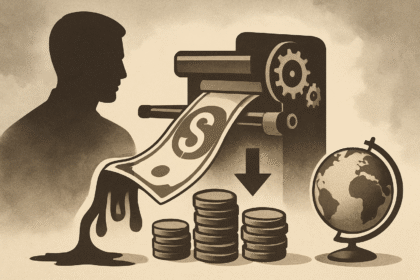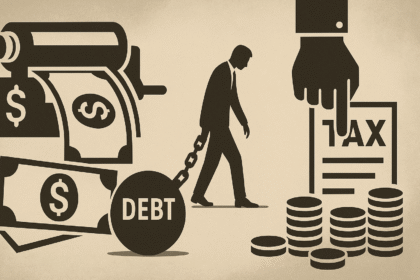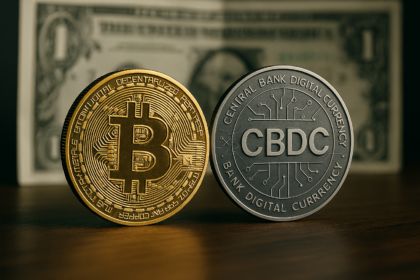Governments claim to protect the financial system by attacking private currencies, but their real goal is to maintain a monopoly on money and control society. This analysis exposes the threat to individual freedom...
This post concludes the "What Is Printing Money?" series, bringing together the five published articles and highlighting key lessons learned about the impacts of government monetary issuance. The series offers a...
In this fifth post in the series "What Is Printing Money?", we present practical and philosophical solutions to escape the state's inflationary system: from Bitcoin to backed currencies, and through competition...
Cryptocurrencies go beyond technological innovation: they are a form of resistance to state manipulation of money. This article explains why Bitcoin is more than speculation—it's an instrument of freedom...
Cryptocurrencies have gone from being an experiment for enthusiasts to becoming the center of one of the biggest battles of the 21st century: the struggle between individual freedom and state control over money...
The rise of decentralized cryptocurrencies reveals a profound shift in the relationship between individuals and money. This article explores the clash between the quest for financial sovereignty and the attempt...
As governments move forward with their own digital currencies, serious questions arise about the future of financial freedom. This article analyzes the risks of so-called CBDCs, which promise innovation but...
The emergence of Bitcoin was a response to the crisis of state money, not a simple technological innovation. This article revisits the roots of money according to the Austrian School, analyzing why cre...
With rising inflation and rising global protectionism, cryptocurrencies are gaining traction as a hedge against instability and state control. A critical and strategic look at the role of digital currencies in...








